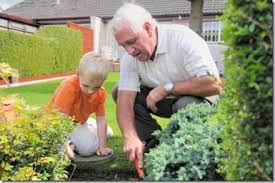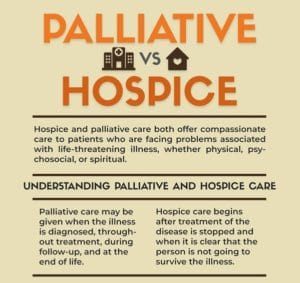
Being a caregiver to an aging parent already presents a lot of emotional, physical, and financially challenges on an adult child. So, when you add to the mix a chronic illness, one can only imagine the amount of strain this puts on the entire family. While it may feel like your world has turned upside down, the reality is that there are effective ways to support your loved one while still being there for yourself and other members of your family.
Give Them Space
Upon hearing the news of their health condition, you can expect that your parents are going to have a plethora of emotions going on in their minds. Though you want to be their source of light and motivation, it is important that you provide them with some space to grieve. Give them a bit of space to wrap their heads around what is happening and let out those overwhelming emotions. This may mean keeping the kids from running into grandma and grandpa’s room or simply not bringing up the subject-matter for a few days.
Learn All You Can
As you allow your aging parents the time they need to sort through their emotions, you can educate yourself on their condition. Let’s say they’ve been diagnosed with cancer. Now would be the time to learn all you can about their particular type of cancer. You can also do some in-depth research online, or talk to various experts about innovative technologies, medicines, and procedures that can help such as car t-cell therapy, herbal remedies, diets, and more. This way, when your parent is ready to discuss their condition, you have an idea of the resources they can turn to.
Talk to the Rest of Your Family
At some point, the children, your spouse, and anyone else who is in the home will realize the physical and emotional changes that your parents are going through. Therefore, it is important not to keep them in the dark for very long.
After giving your parents time to calm down and accept their reality (so they’re not bombarded with questions and emotions of their relatives), talk to the rest of the members in your household. In an age-appropriate manner explain what is going on, and even provide them with ways they can help support. If the diagnosis is life-threatening, you may want to consider getting your entire family into therapy so they can learn how to cope with the overwhelming emotions.
Consider Getting More Help
Caring for aging parents with a chronic illness will most certainly demand more of your time and energy. Chances are you’re running on empty as it is, so don’t be afraid to consider getting more help. While you may have thought you didn’t need a home health aide in the past, with more medications, doctor’s appointments, and complications to their health, you might want to revisit that decision. Even having them come on a part-time basis would free up your time so you don’t become overwhelmed.
Now, is also a good time to ask relatives to help out with things around the house or being there for the kids physically and emotionally. You might even benefit from having a housekeeper, pet walker, or babysitter on hand to take some of the household and family responsibilities off your hands.
Consider a Senior Community
Again, it can be a lot to care for someone you love with a chronic illness. As their condition worsens and they’re unable to do for themselves, all of these responsibilities will fall onto you. If it becomes too much to bare physically, financially, or emotionally, you may need to consider a senior community. Nursing homes are facilities where trained medical professionals are on staff around the clock. They are trained to know how to treat patients with chronic illnesses to ensure they get the best care possible.
Prepare Their Estate
Though a difficult conversation to have with your parents, if you haven’t done so in the past, now is the time to talk about their estate plans. The hope, of course, is that they live as long as they possibly can, but with a chronic illness, you can never be too sure. Rather than wait until things get worse, discuss their estate and final wishes to find out what they want to be done. Get things in place like their will, long-term care insurance, property deeds, businesses, and other assets so you know where everything is should you need it. If you are not already the power of attorney, you want to find out if your parents will designate you.
No one wants to think about the day that their mom or dad becomes chronically ill, but it happens more often than you may know. Should an aging loved one bit hit with this devastating news, it is imperative for you to be the strong support they need to get through. While remembering to prioritize your own health and needs, utilize the advice above to make this transition as easy as possible for all involved parties.








